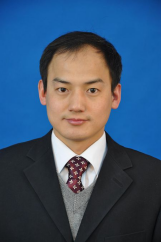
Speakers

Prof. Yunqing Rao, Huazhong University of Science and Technology, China
Yunqing Rao graduated with a Bachelor's degree in Mechanical Manufacturing from Huazhong University of Science and Technology (formerly Huazhong Institute of Technology) in 1989. After obtaining a Master's degree in Mechanical Manufacturing from the same university in 1992, he remained there as a faculty member. In 1999, he earned a Ph.D. in Mechanical Manufacturing and Automation from the same institution. Supported by the Hong Kong Chiang's Foundation, he received training in Industrial Production Management at RWTH Aachen University in Germany in 2001. In 2002, he was exceptionally promoted to Professor. From 2004 to 2005, he was a visiting scholar at the Department of Engineering Science at the University of Oxford, sponsored by the Chinese government. He served as the Deputy Director of the State Key Laboratory of Digital Manufacturing Equipment and Technology (now the National Key Laboratory of Intelligent Manufacturing Equipment and Technology) from 2006 to 2013. Currently, he is a Level 2 Professor and Ph.D. advisor at the School of Mechanical Science and Engineering, Huazhong University of Science and Technology.
He has long been engaged in scientific research and application development in fields such as intelligent optimization, digital manufacturing, and intelligent manufacturing. He has led and participated in numerous major projects, including the National Basic Research Program of China (973 Program), the National Key R&D Program, the National Natural Science Foundation of China, the 863 Program, major national scientific and technological projects, and special projects on intelligent manufacturing by the Ministry of Industry and Information Technology. He holds 15 national invention patents and 30 software copyrights. He has published five academic monographs in both Chinese and English, co-authored two textbooks, and published over 200 academic papers, with more than 100 indexed by SCI/EI.
Rao emphasizes the integration of theoretical research and practical application. As a key contributor, he participated in the development of an optimization platform for mass mixed-flow production processes and an MES system that has been successfully applied in industries such as automotive. He also led the development of an operational optimization and production control platform for heavy equipment manufacturing workshops, as well as a highly efficient CNC cutting CAM technology and complete software system, which have been successfully applied in sectors such as engineering machinery, heavy machinery, energy equipment, and heavy steel structures, generating significant social and economic benefits. He has been awarded one second prize for National Science and Technology Progress and two first prizes for provincial and ministerial-level Scientific and Technological Progress.

Prof. Niu Ben, Dalian University of Technology, China
Niu Ben is currently a professor and doctoral supervisor at the School of Control Science and Engineering, Dalian University of Technology, and the director of the Institute of Intelligent Science and Technology. He was selected into the National High-level Young Talent Program, and has been continuously selected into the lists of Clarivate's Global Highly Cited Scientists, Elsevier's China Highly Cited Scholars, and the world's top 100,000 scientists. In 2007, he received a bachelor's degree in mathematics and applied mathematics from the School of Mathematics and Science at Liaocheng University; In January 2013, he obtained his PhD in Control Theory and Control Engineering from the School of Information Science and Engineering at Northeastern University. He mainly engages in research on intelligent control algorithms, robot control, and applications. He has published more than 100 papers in ESI computer, ESI engineering and other major academic journals and conferences, including more than 100 papers included in SCI. As the person in charge, he has presided over 3 general projects of the National Natural Science Foundation of China, 1 youth project of the National Natural Science Foundation of China, and 5 provincial and ministerial projects. He has won the second prize of Liaoning Natural Science once and the second prize of Shandong Natural Science once.
Topic: Research progress of adaptive control for nonlinear switched systems
Abstract: This report focuses on "adaptive control of nonlinear switched systems", an important frontier scientific issue, including: 1. A novel log-function type nonlinear mapping is introduced to deal with the output constraints, which solves the adaptive intelligent tracking control problem under the output constraints of nonlinear switched systems with lower triangular structure, and an alternative method of derivation of virtual control functions is proposed to overcome the problem of " explosion of complexity " in the process of backstepping recursion. 2. The model of nonlinear switched system with extended lower triangular structure and its adaptive intelligent tracking control strategy are proposed. The unknown nonlinear functions are modeled intelligatically by using neural networks and fuzzy systems, and the stability theory based on multiple Lyapunov functions is given under the condition of model estimation error, which breaks the bottleneck that the traditional control theory cannot be applied to switched nonlinear systems. 3. The stability theory of stochastic nonlinear switching system based on average dwell time is established, and the integrated design scheme of intelligent tracking controller and switching signal is given in the form of state feedback. Further, the stability theory of general nonlinear switching system based on mode-dependent average dwell time is proposed under the adaptive framework, such that some key scientific problems in the theoretical study of nonlinear switched system stability are solved.

Prof. Mouquan Shen, Nanjing Tech University, China
Mouquan Shen received the Ph.D. degree in Control Theory and Control Engineering from the College of Information Science and Engineering, Northeastern University, Shenyang, China, in 2011. From 2012, he was with the College of Electrical Engineering and Control of Science of Nanjing Tech University, Nanjing, China. Since 2018, he has been a full Professor with Nanjing Tech University, China. From 2015 to 2021, he was an visiting scholar with Yeungnam University, The University of Hong Kong, Hong Kong, and The University of Adelaide, respectively. His research interests cover fuzzy systems, iterative learning control, Adaptive dynamic programming, networked control systems, Hybrid systems and so on. He has published over 90 international journal papers and received over 1900 citations with h-index of 24.
He has been served as Editor-in-Chief for Advances in Fuzzy Sets and Systems and Associate Editors for ISA TRANSACTIONS, Proc. IMechE Part I: Journal of Systems and Control Engineering, International Journal of Robotics and Control Systems. He is also an active reviewer for over 70 international journals, such as IEEE Transactions on Automatic Control, IEEE Transactions onCybernetics, IEEE Transactions on Systems Man Cybernetics-Systems, IEEE Transactions on Fuzzy systems.
Title: Research on key techniques of intelligent manufacturing with optimization consideration
Abstract:This talk focuses on key techniques of intelligent manufacturing with optimization consideration. Based on the modified index, two optimal data-driven control laws are provided by employing adaptive dynamic programming method and Q-learning algorithm, respectively. Two novel event-triggered mechanisms are constructed by utilizing instantaneous and averaged data as well as performance cost, respectively. Sufficient conditions are developed to ensure the ultimately uniform boundedness of the resultant systems. Finally, some examples are presented to verify the effectiveness of the proposed schemes.